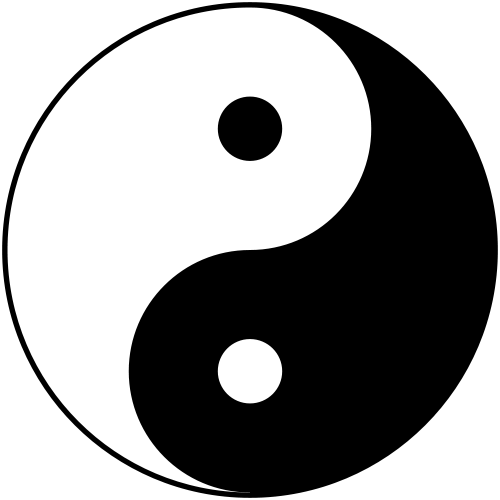
Tai Chi is much more than just a physical exercise. At its core, Tai Chi is a deeply philosophical practice that seeks to harmonize body, mind, and spirit. The philosophy behind Tai Chi is rooted in Taoism, a Chinese philosophical tradition that dates back over 2,000 years. In this blog post, we will explore the philosophy behind Tai Chi and how it can help you find inner peace and harmony in your life.
What is Taoism?
Taoism is a philosophical and religious tradition that originated in ancient China. The word “Tao” means “the way” or “the path,” and refers to the natural order of the universe. Taoists believe that everything in the universe is interconnected and that all things arise from and return to the Tao.
One of the key principles of Taoism is the concept of Wu Wei, which can be translated as “effortless action” or “non-doing.” Wu Wei emphasizes the importance of going with the flow of life, rather than trying to control or force outcomes. In Taoist philosophy, true success and fulfillment come from aligning oneself with the natural order of the universe, rather than trying to impose one’s will on the world.
The Taoist Influence on Tai Chi
Tai Chi is deeply influenced by Taoist philosophy, particularly the concept of Wu Wei. In Tai Chi practice, the emphasis is on relaxation, fluidity, and non-resistance. Rather than using force or tension to perform movements, Tai Chi practitioners seek to move with ease and grace, allowing the body to flow like water.
The goal of Tai Chi practice is to harmonize body, mind, and spirit, and to achieve a sense of inner peace and balance. In Taoist philosophy, this is known as achieving a state of “wei wu wei,” or “doing without doing.” This state is characterized by a sense of effortlessness and naturalness, where actions arise spontaneously and effortlessly from a place of deep inner peace and harmony.
Taoist Philosophers and Tai Chi
Taoist philosophy has had a profound influence on Tai Chi practice. Here are three examples:
- Laozi: Laozi is the author of the Tao Te Ching, one of the most important texts in Taoist philosophy. The Tao Te Ching emphasizes the importance of simplicity, humility, and non-action. It encourages people to let go of their desires and to live in harmony with the natural world. In Tai Chi practice, the principles of the Tao Te Ching are reflected in the emphasis on relaxation, non-resistance, and going with the flow.
- Zhuangzi: Zhuangzi was a philosopher who lived in the 4th century BCE. His writings emphasize the importance of spontaneity, playfulness, and non-attachment. Zhuangzi believed that true happiness and fulfillment come from living in harmony with the Tao, rather than trying to impose one’s will on the world. In Tai Chi practice, the principles of Zhuangzi are reflected in the emphasis on relaxation, playfulness, and naturalness.
- Liezi: Liezi was a philosopher who lived in the 4th century BCE. His writings emphasize the importance of cultivating inner peace and harmony. Liezi believed that true wisdom comes from letting go of one’s ego and cultivating a sense of detachment. In Tai Chi practice, the principles of Liezi are reflected in the emphasis on relaxation, mindfulness, and inner peace.
Finding Inner Peace and Harmony through Tai Chi
Tai Chi practice can be a powerful tool for finding inner peace and harmony in your life. By embodying the principles of Taoist philosophy, you can cultivate a deep sense of relaxation, mindfulness, and naturalness. Here are a few ways that Tai Chi can help you find inner peace and harmony:
- Relaxation: One of the key principles of Tai Chi is relaxation. By letting go of tension and stress, you can cultivate a sense of calmness and ease in your body and mind. This can help you to feel more centered and grounded, even in the midst of challenging circumstances.
- Awareness: Tai Chi practice requires a deep level of concentration and awareness. By focusing your attention on the present moment, you can cultivate a sense of mindfulness that can help you to be more present and engaged in your daily life.
- Naturalness: Tai Chi practice encourages you to move in a way that feels natural and effortless. By embracing your body’s natural rhythms and movements, you can cultivate a sense of harmony and balance in your physical being.
- Non-attachment: Tai Chi practice encourages you to let go of your ego and to cultivate a sense of detachment. By releasing your attachment to outcomes and expectations, you can cultivate a deeper sense of inner peace and acceptance.
- Connection to the natural world: Tai Chi practice is rooted in the principles of Taoism, which emphasize the interconnectedness of all things in the natural world. By connecting with nature through Tai Chi practice, you can cultivate a sense of harmony and balance within yourself.
In conclusion, Tai Chi is much more than just a physical exercise. It is a deeply philosophical practice that seeks to harmonize body, mind, and spirit. The principles of Taoism, particularly the concept of Wu Wei, are deeply embedded in Tai Chi practice. By embracing these principles, you can cultivate a deep sense of inner peace and harmony in your life. Whether you are new to Tai Chi or an experienced practitioner, the philosophy behind Tai Chi can help you to find greater balance, harmony, and fulfillment in your life.
Leave a Reply